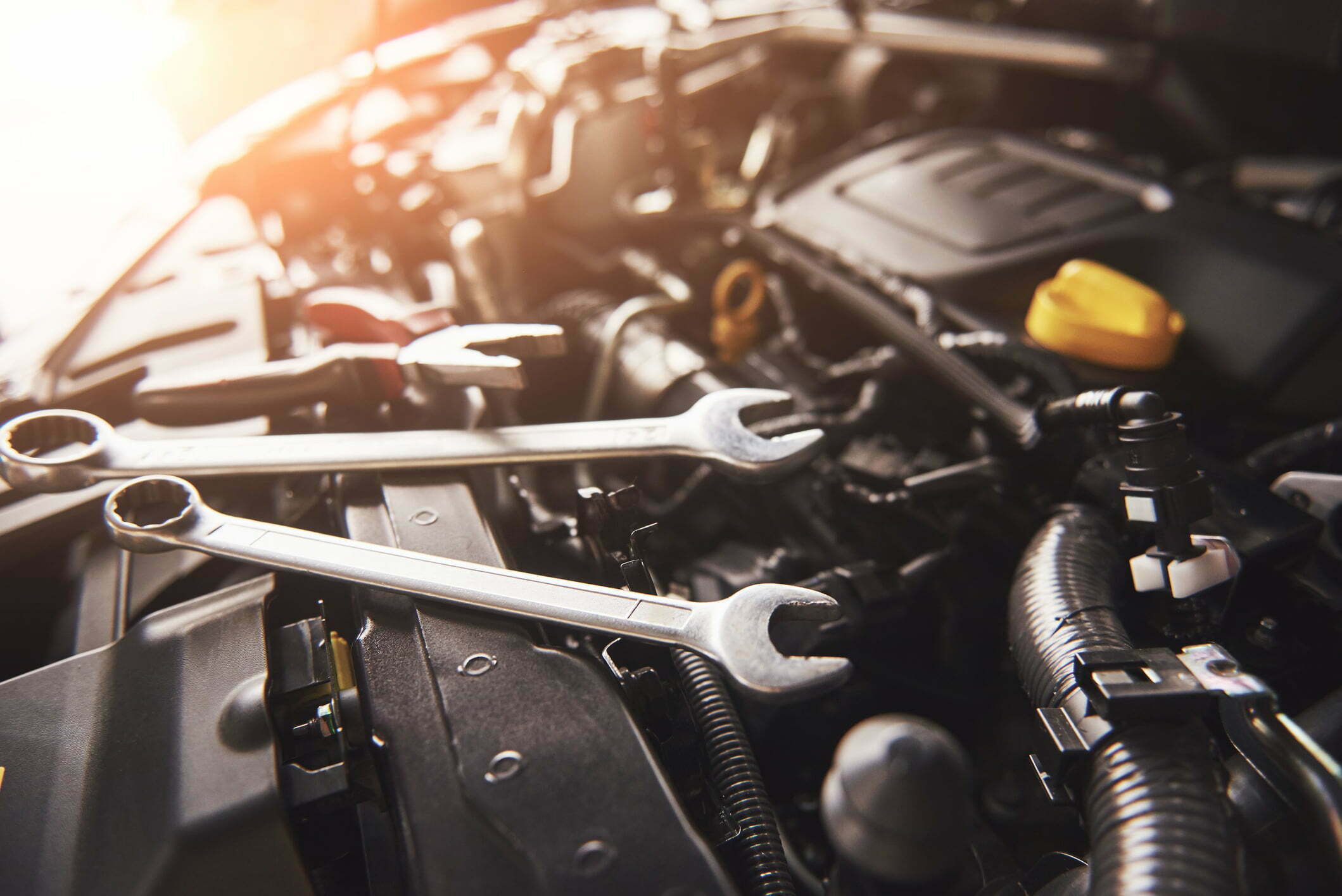If your engine were an orchestra, the timing chain would be the conductor. Opening and closing valves, moving pistons, connecting rods – all of this must happen at a given time and in a given sequence. Without the timing chain, you simply aren’t going anywhere.
Serving the same function as a timing belt (which most people would be more familiar with) which sits on the outside of the engine within its own casing, a timing chain actually sits within the engine itself. This is because it’s constructed from metal and needs the lubrication provided by engine oil. It looks much like a bike chain and is attached to a set of gears and pulleys.
Do timing chains need to be replaced?
The advantage of a timing chain over a timing belt is that it’s designed to last a lifetime – it should never need to be replaced. Of course, this is assuming correct and consistent maintenance of the vehicle, which – believe us – is rare. If it isn’t functioning at its best, or has failed entirely, other major components of the engine will suffer too. It’s worthwhile, therefore, knowing the signs of a failing timing chain.
Let’s take a look at what they are.
Signs of a worn timing chain
#1: A noisy engine
Your ears are the best diagnostic tool at your disposal to pick up on potential issues with your car. Like a mother picking out her newborn’s mewl in the maternity ward, we instinctively recognise the particular thrum of our engine (a slight exaggeration, perhaps). Point is, you don’t have to be a mechanic or a petrol head to notice an odd noise emanating from your car.
A loose or poorly functioning timing chain might be signalled by an odd vibration or rattling noise coming from the front of the engine. The silver lining of this issue is that it probably won’t be broken but maybe just a little loose and in need of a repair.
In any case, whenever your car sounds different, get it checked. Ten times out of ten, there’s an issue that needs to be attended to.
#2: Odd performance
We’re familiar with the note of our cars and we’re also familiar with their performance. If you notice excessive engine oil consumption or poor oil pressure, it could indicate an issue with the timing chain. If you’re visiting the bowser more than usual, that could also indicate something is amiss.
Misfiring, too, is a common indication of an unhealthy timing chain. If you find your car is stuttering or jerking, it could be because the timing chain has stretched with time and is now skipping a gear on the cam or crank shaft. If it’s stretched it is in danger of breaking and, when that happens, it may be more than the chain that needs replacing.
Whenever your car behaves oddly, it’s trying to tell you that something is wrong. Get it checked.
#3: Metal shavings
This is one your mechanic is more likely to pick up on. Engine oil degrades over time due to heat and natural solvents found in petrol. If it stops lubricating the engine properly, the timing chain can wear. When this happens, little pieces might start breaking off as it rubs up against other metal components within the engine and find their way into the oil pan.
If your mechanic detects metal shavings in the oil pan, the timing chain will most certainly have to be inspected for wear. If it is the culprit, it will have to be replaced.
What can you do to avoid timing chain problems?
To avoid issues with the timing chain, make sure that your car is maintained regularly. The best thing for timing chains is good quality, fresh oil, more often. That’s right, change the oil more often like halfway between what the manufacturer states. We seriously cannot overstate how important engine oil is to just about every component that allows your vehicle to function.
